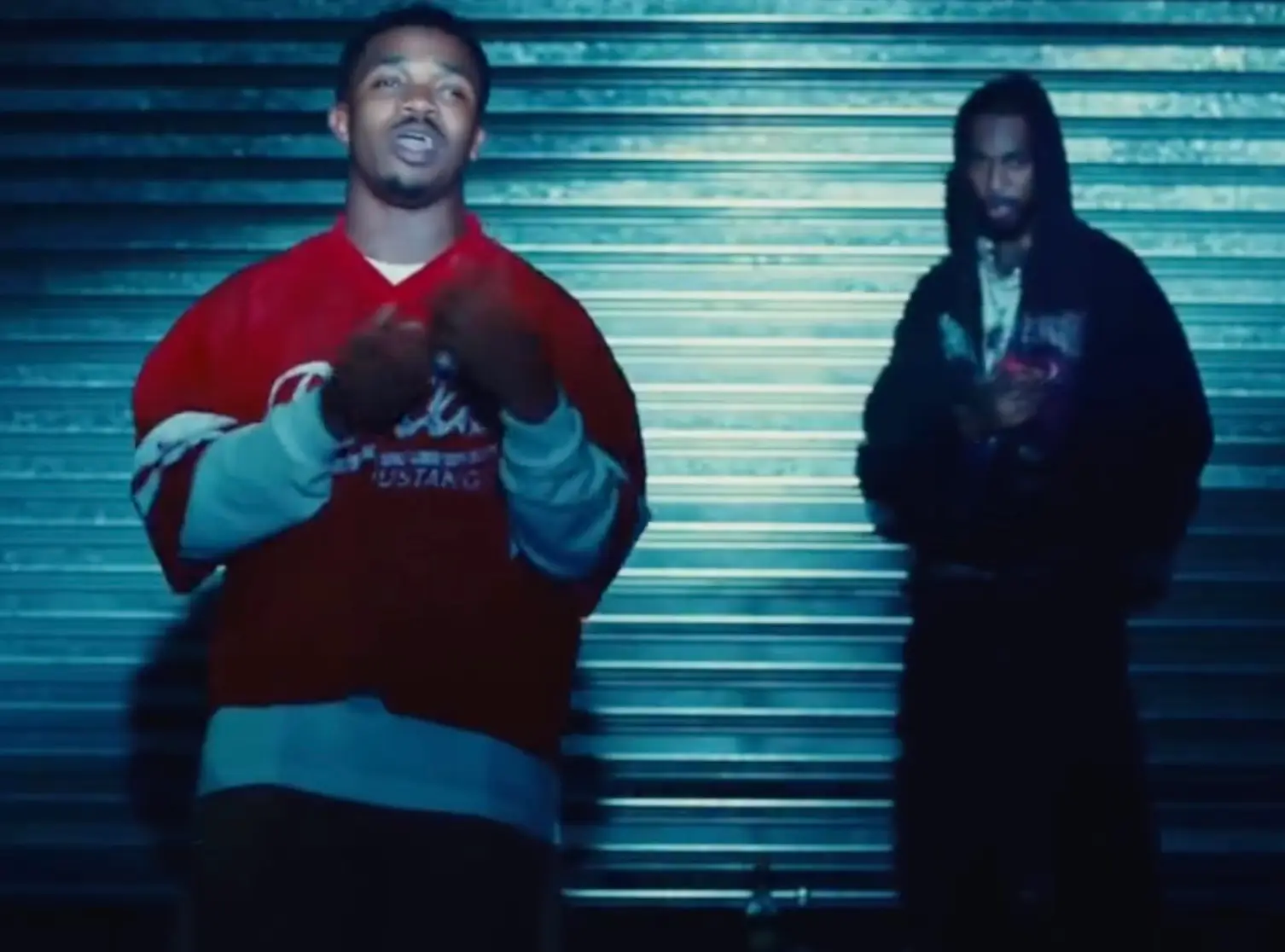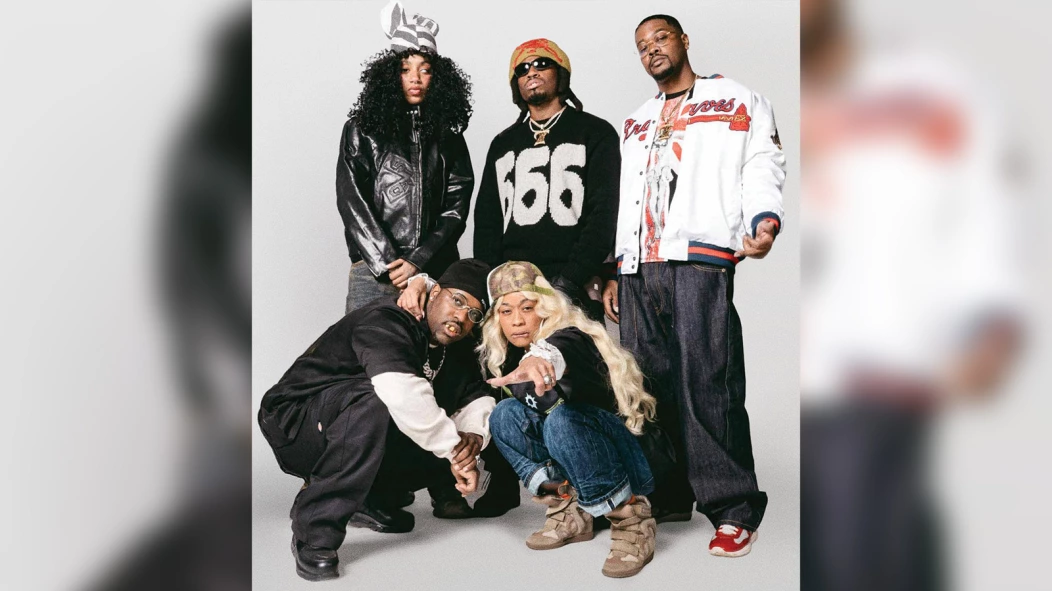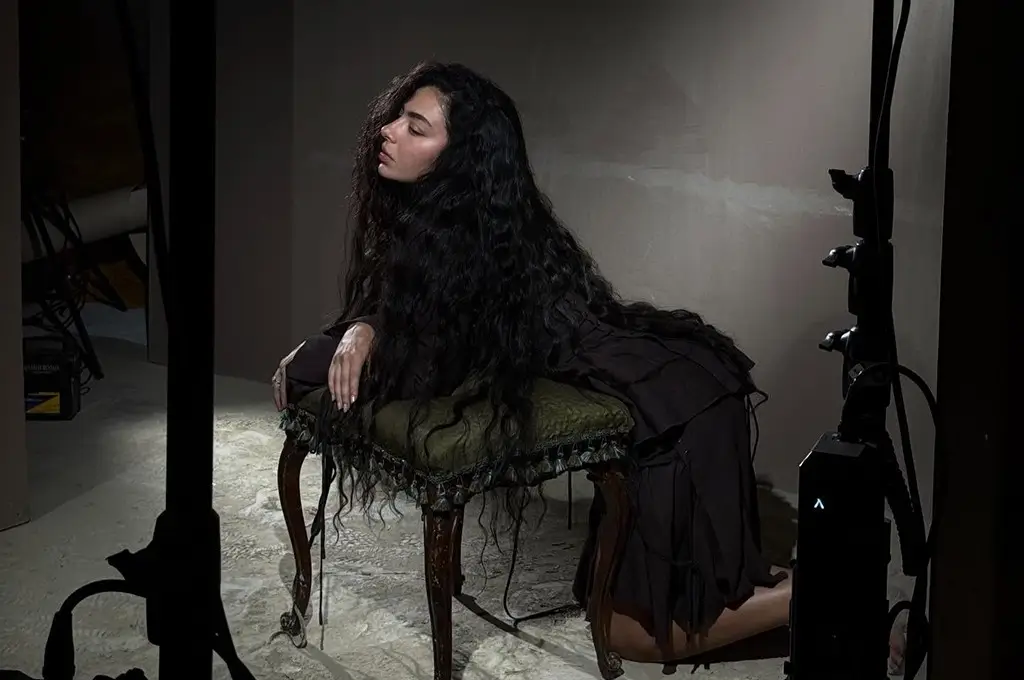A Literary Composition on Loss, Code-Switching, and the Trap Line That Keeps Ringing
“Dope Boy Phone,” a newly unearthed collaboration between Takeoff and Quavo, doesn’t sound like a posthumous release. That’s part of its power. There’s no tragic gloss, no slowing down of the beat to remind us that one half of the track no longer walks this earth. Instead, it rings clear, insistent, and fully alive—like a trap phone that never stops buzzing, a memory that refuses to stay silent.
In this track, released after Takeoff’s tragic death, Quavo’s voice wades through coded nostalgia while Takeoff’s delivery, as always, is effortless and gliding. Together, they reaffirm what made Migos not just an Atlanta trio but a national pulse: cadence-as-weapon, slang-as-architecture, kinship-as-forcefield.
Dial Tones of the Trap
The title itself, “Dope Boy Phone,” carries weight. It isn’t just a burner, a Nokia, or a Motorola Nextel chirping from a shoebox—it’s symbolic. The dope boy phone is the hotline to power, to hustle, to coded survival. It’s also the line that separates two worlds: one that obeys legality and another that carves its own system.
In the trap pantheon, the phone isn’t just a tool—it’s a character. It’s the voice that never rests, the specter that both frees and entraps. Quavo and Takeoff use it as metaphor and muscle. Over a beat that feels like a warbly, bass-heavy late-night crawl through Atlanta’s zone six, they trade bars with coded elasticity. The lyrics don’t over-explain. They don’t need to. The codes are clear to those who know, and mysterious to those who don’t—just like any burner line worth answering.
Takeoff’s voice enters with eerie precision, cutting into the instrumental like a flicked razor. His verses are not frantic, nor mournful—they’re crystalline. Takeoff had a way of rhyming that always felt like a still wind: no wasted energy, just movement. Even in a song about surveillance, risk, and coded communication, he raps like someone who trusts the cadence more than the chaos.
Brotherhood on the Beat
The chemistry between Quavo and Takeoff has always been familial—and literally so. As uncle and nephew, they were bound by blood and beat long before the world knew them as Migos. But “Dope Boy Phone” feels different than the high-octane, meme-era Migos cuts like “Bad and Boujee” or “Fight Night.” It’s slower, heavier, moodier. It leans into a world of flickering streetlights, unmarked vans, and coded calls—evoking a climate that the mainstream often borrows from, but rarely understands.
In this song, their flow isn’t competitive—it’s complementary. Quavo’s auto-tuned drawl washes over the beat like syrup over steel, while Takeoff cuts clean and cold. There’s no hooky theatrics here. No viral dance challenge. Just trap talk, unfiltered.
And yet, the emotional undertow is undeniable. Quavo’s lines land with an edge that feels rawer since Takeoff’s passing. In his delivery, there’s both a sense of duty and longing—a need to keep the music ringing, to keep the story moving forward even when a verse is missing forever.
A Language Within a Language
“Dope Boy Phone” also operates as a linguistic document. Trap has always created its own dialects—acronyms, syllable flipping, vocodered code-switches. What Quavo and Takeoff do here is craft sentences that double as shields. Their word choices invoke a geography: corner stores, 808s echoing through trap houses, labels wrapped around Styrofoam.
More than any metaphor, though, the phone becomes a sonic conduit. There’s the actual ringtone motif buried in the beat—a loop that mimics the obsessive, rhythmic buzzing of a phone that never stops. But there’s also the metaphorical call: this song, posthumously including Takeoff, is a transmission from another side. A ghost line. A lyrical séance.
It’s not melancholy—it’s mnemonic.
The Weight of the Voice
Takeoff, known for his reserved demeanor and meticulous delivery, always played the silent technician within Migos. Where Offset exuded fire and Quavo swagger, Takeoff moved like smoke—unseen until inhaled. His death in late 2022 was more than a tragedy; it was the silencing of a tempo that anchored a generation.
That’s why “Dope Boy Phone” hits differently. This isn’t just a verse. It’s evidence of presence. It’s one more call answered. One more voice that cuts through the digital haze to remind us: the trap remembers.
And that’s what this track ultimately becomes: a remembrance embedded in rhythm. Not a eulogy. A recording.
Trap as Archive
Beyond the music, “Dope Boy Phone” reminds us of how trap has become one of the few living archives of modern Black Southern life. It’s both autobiography and coded memoir. In its references to surveillance, business, missed calls, and losses, it becomes a document not unlike a diary—but encrypted.
For those on the outside, it’s easy to reduce such tracks to cliché: drugs, money, phones. But the song is smarter than that. It asks the listener to decode. To listen between lines. To understand that every “call” is a stand-in for something else: family, hunger, fear, strategy, loyalty.
And that’s why the phone won’t stop ringing.
Conclusion: The Echo That Won’t Fade
“Dope Boy Phone” is not just another street banger. It’s a transmission from a world that rarely gets the chance to archive itself. In a music industry obsessed with spectacle, Takeoff and Quavo offer something subtler: a song that builds from rhythm and memory. No nostalgia necessary. No mourning wrapped in autotune.
The phone rings. The beat drops. Takeoff’s voice answers.
No comments yet.








